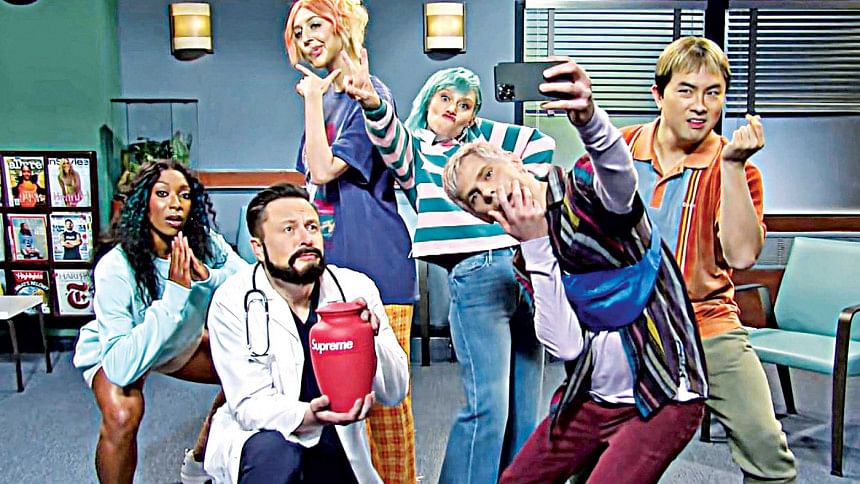The Problem with Online Slang

Gen Z have grown up with never-before-seen accessibility to knowledge and discourse. While they continue to spread positive messages of acceptance that many of our former generations failed to recognise, there are many problems that are still left unresolved.
One such problem may exist in the way they express themselves online.
Words such as "woke" and "lit" seem to have crept into the day-to-day social media vernacular. They are starting to be referred to as "Internet slang". However, is it correct to categorise these phrases as such?
Last May, Saturday Night Live (SNL) writer and comedian Michael Che got involved in controversy after writing a sketch making fun of "Gen Z slang", in which five people played stereotypical Gen Z characters, speaking in an exaggerated fashion, using words such as "pressed", "stan", and "no cap".
There was an uproar on social media after the live show aired, with people pointing out the fact that SNL had tried to pass off African American Vernacular English (AAVE) terms as Gen Z dialect. Many discussed how the writer's intention was to, perhaps, poke fun at the internet youth's misuse and appropriation of AAVE. That argument, however, was rendered useless when Michael Che revealed in a now-deleted Instagram post, that he actually had no idea what AAVE even was.
AAVE is spoken among the Black community. It is also commonly known as "Ebonics", it is a dialect of American English. AAVE can be differentiated from the standard American English dialect because of its contrast in vocabulary and diction.
In the SNL sketch, AAVE was branded as Gen Z language. It is not just slang, it is a dialect used by Black people to interact with one another. AAVE also has a defined grammar, which was ignored in the sketch as it seemed like there were some AAVE terms sprinkled throughout and being passed off as Gen Z slang.
This has sparked up the age-old debate about cultural appropriation. Black culture, music, and art have been influential throughout the ages. There is not enough acknowledgement of the fact that a lot of modern pop culture takes inspiration from Black culture. Historically, people of colour (POC) have been robbed of opportunities because of negative stereotypes, and cultural appropriation encourages that mindset further.
A lot of people fail to distinguish the difference between appropriation and appreciation. Well, it is perfectly fine to appreciate Italian food, enjoy Korean shows and music, travel to foreign countries and engage with their traditions. However, one has to draw the line, the moment a dominant group steals from an oppressed group, puts their own label on it and fails to understand the gravity of the effect it has on the community.
Sharing of cultures has been perpetuated since the beginning of civilisation, but it is also important to acknowledge and honour ideas, artistry and origins, and to recognise their sources.
Durdana Kamal likes to do things which mostly have no purpose whatsoever. Contact her at [email protected]

 For all latest news, follow The Daily Star's Google News channel.
For all latest news, follow The Daily Star's Google News channel. 



Comments